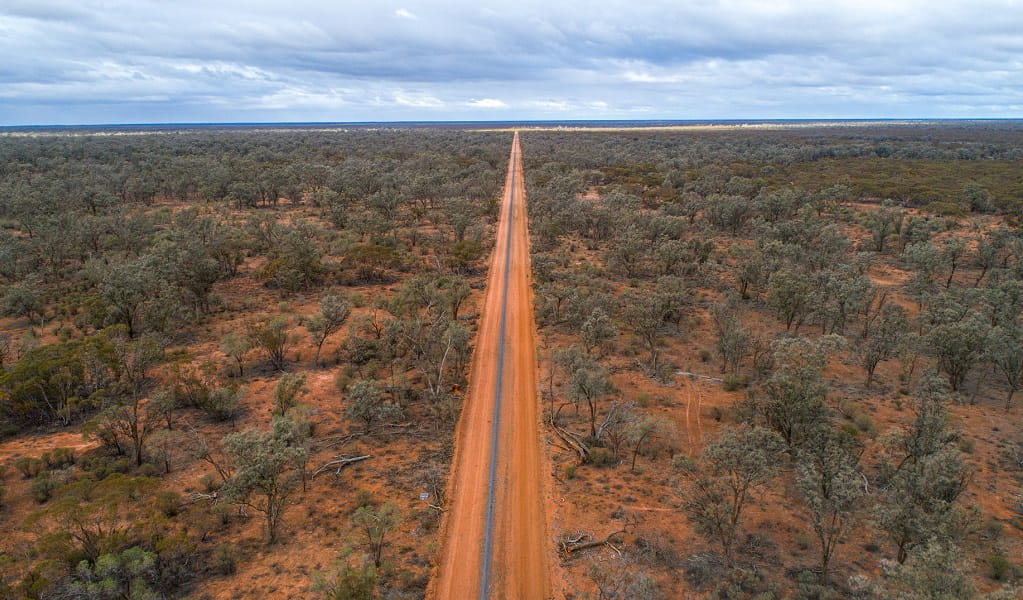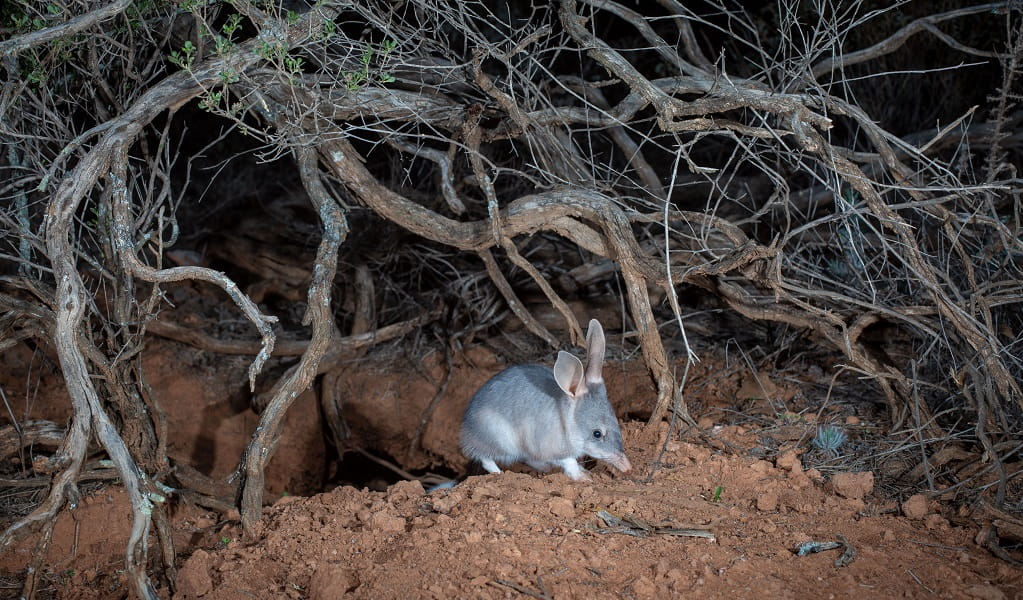Mallee Cliffs tag-along tour
Mallee Cliffs National Park
Overview
Don’t miss this unique tag-along tour to Mallee Cliffs National Park. It's a feral predator-free area, where some of our most threatened mammals now thrive. Meet field ecologists and hear about their work.
- When
Wednesday 24 April 2024, 8.45am to 2.30pm. Meet at 8.15am.
- Accessibility
- No wheelchair access
- Grade
- Easy. Suitable for adults and children (10 years and over) of all fitness levels. You’ll be walking on flat surfaces.
- Price
-
Adult/child (10 years and over) $45 per vehicle (includes 1 passenger), plus $10 per additional person in the same vehicle. $20 per person for individuals who'd like to carpool.
Includes morning tea and non-alcoholic drinks.
Tour capacity: Nine 4WD vehicles only.
- Meeting point
- Australian Wildlife Conservancy Depot, Cnr Short Street and Silver City Highway, Buronga. Meet at 8.15am.
- What to
bring - Lunch, drinking water, suitable clothing, sunscreen, hat, binoculars, insect repellent
- Bookings
- Bookings required. If using your own vehicle, book online via the 'Book now' button. If carpooling, email Australian Wildlife Conservancy to buy tickets.
- Please note
- There is extremely limited / no mobile phone coverage at Mallee Cliffs National Park.
- This tour is suitable for 4WDs only.
This is a one-of-a-kind opportunity to step inside mainland Australia’s largest feral predator-free area. Because of this program, the greater bilby, numbat, brush-tailed bettong and other threatened wildlife now live in safety in Mallee Cliffs National Park.
Explore the majestic old growth Mallee woodlands. Discover how Australian Wildlife Conservancy (AWC) and NSW National Parks are successfully re-establishing wild self-sustaining populations of threatened mammals in one of the most important nature reserves in the Murray-Darling basin. Enjoy the chance to meet AWC's dedicated field ecologists and land managers. You’ll hear first-hand about their work delievering this important conservation program in far-western New South Wales.
If you have a UHF radio, bring it along. It's also a good idea to bring some camp chairs so you can enjoy lunch and the presentations in comfort.
General enquiries
- National Parks Contact Centre
- 7am to 7pm daily
- 1300 072 757 (13000 PARKS) for the cost of a local call within Australia excluding mobiles
- parks.info@environment.nsw.gov.au
Park info
- in Mallee Cliffs National Park in the Murray-Riverina region
What's nearby:
Things to do (34)
- 4WD touring (3)
- Aboriginal culture (14)
- Birdwatching and wildlife encounters (12)
- Canoeing/paddling (2)
- Cultural heritage (2)
- Cycling (3)
- Environmental appreciation/study (1)
- Fishing (2)
- Geotourism (3)
- Historic heritage (12)
- Other experiences (1)
- Photography (1)
- Picnics and barbecues (10)
- Road trips and car/bus tours (3)
- Sailing, boating and cruises (2)
- Sightseeing (14)
- Swimming (1)
- Visitor centres (1)
- Walking (7)
- Wildflowers (seasonal) (1)

